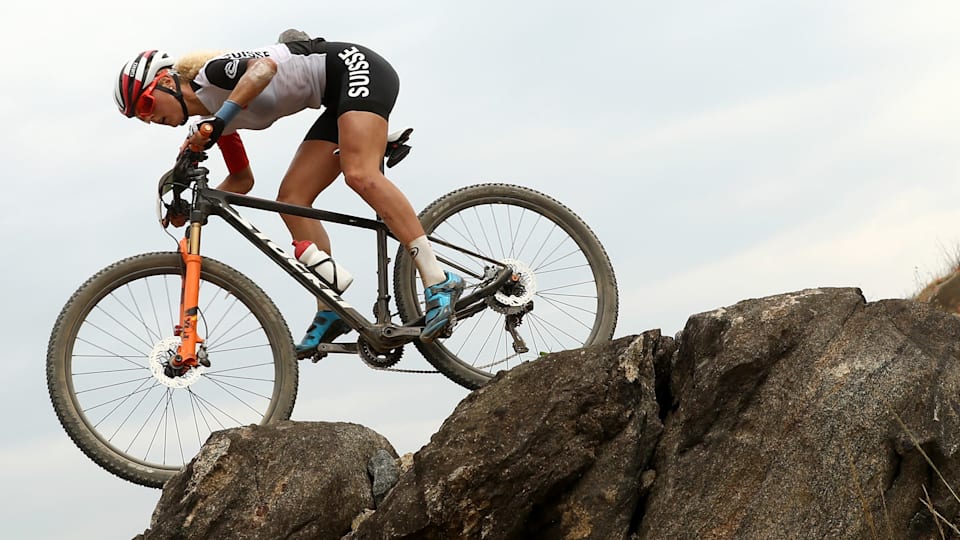Jolanda Neff on the road to Tokyo 2020
We’re with Swiss mountain bike, cyclo-cross and road race champion Jolanda Neff as she gears up for Tokyo 2020. The Olympic Channel’s “Anatomy Of” series takes an in-depth look at the physical capabilities of champions in particular sports and analyses them through a range of tests.

Jolanda Neff is quite the talent on two wheels. At the age of 26, she has already enjoyed success in a range of outdoor events on all types of terrain. As of early 2019, she is the reigning national champion in mountain biking, road racing and cyclo-cross.
Born in St Gallen (in the north-east of Switzerland, close to the German and Austrian borders), Neff competed in the road racing and mountain bike events at the Olympic Games Rio 2016, finishing in the top ten in both – eighth in the former, on an asphalt surface, and sixth in the latter, on hilly, rolling terrain. She also has four world titles to her name – which she won between 2016 and 2018 – in mountain bike marathon, team relay and cross-country Olympic, and is a three-time UCI Mountain Bike Cross-Country World Cup overall champion, having taken gold in 2014, 2015 and 2018.
In the Olympic Channel’s “Anatomy Of” series, Neff is taken to a specialist performance lab, where her physical capabilities are put under the microscope. As Professor Greg Whyte, an Olympian himself, explains: “[In] cross-country mountain biking, because it’s off-road, the variability in terrain makes a really big difference. So you get what’s called stochastic [randomly determined] power output, and to be able to sustain that for long periods of time for the entire race is really a very difficult thing. Add on top of that operating under pressure with large numbers of riders around you at the same time… There are very unique traits that mountain bikers have in comparison to other forms of cycling. If you take a look at all cyclists to some extent, but particularly mountain bikers […] they will tend to be very light, very lean, but very strong and very powerful.”
All of these attributes tally with Neff’s body type, and this was confirmed by hard data through a series of dynamometer tests, measuring quadriceps and hamstring strength and ability to maintain effort for repetition after repetition; a body scan to analyse muscle/body mass ratio (42kg of Neff’s 50kg body mass was shown to be muscle); and skin-fold measure tests. Neff was also placed in a chamber in which she was made to pedal on a Wattbike in tailored race conditions, with a temperature of 31°C, humidity levels of 80 per cent and punishing climbs, to assess her fluid replacement capability.
She also underwent a peak power test to analyse how well her body could respond to situations in which maximum power output was required, such as the uphill sections in cycling races. “What we’re looking for is how much power Jolanda can produce, and then looking at how she can sustain that power output. [It’s] something we call the fatigue index,” explained Professor Whyte. This was measured with an intense sprint-style exercise, again on the Wattbike.
Neff obtained outstanding results in all the tests, which led Professor Whyte to describe her as one of the truly elite athletes in the world – a blend of strength, speed, power and endurance packed into a lean physique.
“My body learns really fast,” says Neff. “If I do something, my muscles adapt immediately. My lungs, my legs, everything. When [there’s] an impact, there is a reaction. There’s this saying – ‘train hard, win easy’. I love the hard work. It’s just an amazing feeling, and once you’re in that zone, you don’t want to be anywhere else.” Her international season this year in mountain biking and cyclo-cross could take her all the way to the Olympic Games Tokyo 2020, where we are likely to be hearing a lot more about her.
